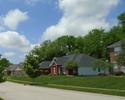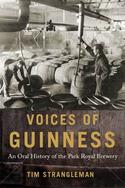It’s thirty years this autumn since I began my undergraduate degree at Durham University in the North East of England. To tell you the truth I didn’t know much about the city before I applied there. My visit for the three required interviews was very enjoyable, and more positive than some of the less elite institutions I had applied to. I enjoyed looking about the Norman castle and cathedral set high on a hill surrounded by the moat-like River Wear. read more »
United Kingdom
Brexit and the Future of the Anglosphere
The triumph of Brexit opens a new page not just in British history, but in the emerging configuration of the global society. It represents not just a rejection of universal globalism embraced by our political and business elites, including in Britain itself, but potentially the rise of new trans-national blocs held together not just by markets and capital, but culture and common beliefs. read more »
- Login to post comments
Standard of Living Crisis Evident in New Demographia International Housing Affordability Survey
One of the principal advances of the past two centuries has been the drastic reduction in poverty and the rise of a large middle-class, a process expertly detailed by economists Diedre McClosky and Robert Gordon. read more »
- Login to post comments
The Jewish Dilemma
Es iz schwer tzu sein a yid. It is hard to be a Jew.
~Sholem Aleichem
When Britain’s Jews go to the polls next week, they do so at an uncomfortable moment. For the first time in at least a half century, their community—roughly 330,000 citizens—has become a major, if unwelcome, political issue. read more »
- Login to post comments
A Clash of Values
Most American concerns with China revolve around economic issues, and, for some, the threat posed by that country’s expanding military. But China’s real existential challenge is not over market shares or submarines, but in a battle of values. Right now, it does not seem we are certain to win.
China presents the most profound challenge to liberal values since the end of the Cold War, a development that has caught our consistently lame political establishment by surprise. The leaders of both parties, and much of the corporate America, never saw it coming. read more »
- Login to post comments
Why Can’t It Be Like That Now? Remembering What We Had and Could Have Again
‘But why can’t work be like that now?’ my colleague Julia asked when I told her about my research into the former Guinness brewery at Park Road in West London. After working on the project for the best part of a decade and a half, it’s sometimes difficult to sum up quickly. Over that time, I’ve looked at thousands of photographs, scores of staff magazines, and hundreds of documents, and I’ve talked to dozens of workers. But Julia’s question cut straight to the heart of the book. read more »
- Login to post comments
Why Socialism Is Back
Even as Venezuela falls deeper into crisis, and the former Soviet bloc nations groan under its legacy, socialism is coming back, and in a big way. Its key supporters are not grizzled pensioners yearning for Marxist security, but a whole new generation, most of whom have little memory of socialist failure. read more »
Erasing Anglo cultural heritage risks what makes our republic diverse
It’s increasingly unfashionable to celebrate those who made this republic and established its core values. On college campuses, the media and, increasingly, in corporate circles, the embrace of “diversity” extends to demeaning the founding designers who arose from a white population that was 80 percent British. read more »
Solidarity, not Division: Understanding London’s East End
The East End of London has a long history of working-class community. It has been a place of industry, where the river Thames and the river Lea have provided work for many people. The area attracted many immigrants, including workers from Africa since Tudor times, sailors from China, former slaves from America, French Protestants facing religious persecution in the 1600s and Irish weavers working in the textile industries. There have been Jewish communities in the East End for centuries, too. The twentieth century saw an increase in immigrants from the former British colonies, including South Asia, particularly Bangladesh. Not only has it been a place to seek a livelihood, but it has also been a place of refuge. read more »
- Login to post comments
Urban Future: The Revolt Against Central Planning
In Milton Keynes, perhaps the most radical of Britain’s post-Second World War “New Towns,” the battle over Brexit and the culture war that it represents is raging hard. There, the consequences of EU immigration policy, of planning instituted by national authority, and of the grassroots yearning to preserve local character have clashed together to shape a platform that may set a precedent for whether central planners or local residents will determine the urban future. read more »





















